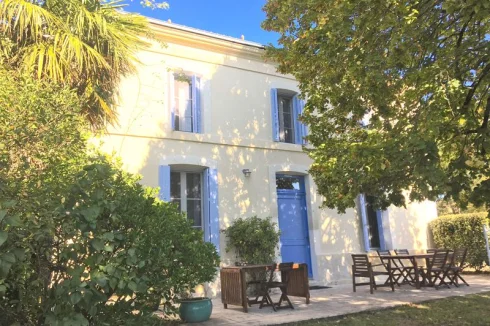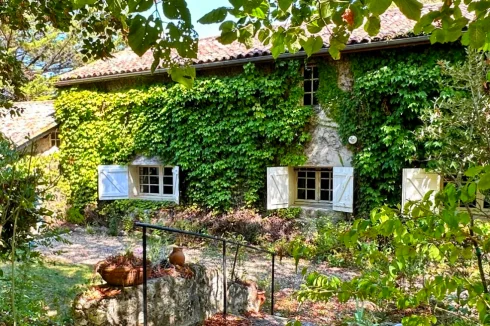Potential Implications of Brexit
Tuesday 03 May 2016
The consequences of a Brexit for UK citizens owning property in France remain uncertain, writes George Peretz QC.
That statement may sound high-faluting and of little practical importance, but it makes the point that when, as a UK citizen, you move to France, or buy property in France, you have a status in France which is quite different in legal terms from the status of, say, a Russian citizen.
You have the right, which a Russian does not have, to invoke a panoply of EU law rights, and to complain to the European Commission, the French courts, and ultimately the ECJ if those rights are not respected.
Mr Konstantinidis was a Greek citizen who wanted his Greek name transliterated into the Roman alphabet in a way that reflected how his name was pronounced. That is probably not something that you are ever likely to be concerned about, but take a much more recent and relevant case.
Mr de Ruyter was a Dutch citizen who was entitled to social security and health benefits in Holland. He had in income from assets in France. The French Government imposed social security contributions from him on that income. Mr de Ruyter went to the French courts: he said that making him pay social security contributions when he got no social security benefit from France was contrary to the right he had as an EU citizen to equal treatment. The ECJ ruled in his favour: France was not entitled to impose those contributions on EU nationals who lived outside France and had no right to French social security.
That case is directly relevant to any UK citizen who lives in the UK but owns a house in France from which they get a rental income. France is now under an EU law obligation to pay back the social security contributions it imposed.
France is seeking to get round the de Ruyter case by changing as from this year the funds to which social security contributions are allocated: but whether that attempt works as a matter of law will in the end be for the ECJ to decide: and the ECJ has a good record in detecting and stopping clever wheezes dreamt up to try to avoid the impact of EU law.
Very importantly, none of that would have helped a Russian owning property in France. A Russian cannot say “civis europeus sum”: and he can still be made to pay social security contributions (or endure a poor transliteration of his name).
The basic EU principle is that you have to be treated equally to a French citizen when you live in or own property in France.
Like all principles there is then a lot of detail, but the key features of your rights are:
- the right to buy property (France cannot, as Switzerland does, declare parts of the country out of bounds to purchasers from the EU);
- the right to set up a business;
- the right to live in France as long as you like without having to apply for long term resident status;
- the right to take any job without having to get a “Green Card”;
- the right in most cases to have your professional qualifications recognised;
- the right not to be deported without a proper reason (Switzerland can deport you if you twice run through a red light);
- the right to vote for your local Maire.
- As a UK citizen visiting France you and your family have the right to any medical treatment you need while you are there, on the same terms as a French national;
- If you work or have a business in France you and your family again get treated in France on the same terms as a French citizen;
- If you get a UK state pension, you and your family again get treated in France on the same terms as a French citizen.
What happens to all this if the UK votes for Brexit?
If the UK were to get a similar deal to that of Norway then nothing much would change. For the purposes of free movement Norway, as an EEA Member State, is effectively in the EU. It imports all the EU’s rules. (It has no vote on those rules, but that is another issue.)
The problem though is that a large part of the eclectic Brexit coalition is voting for Brexit because they want to end free movement. A Norway deal would, to put it mildly, disappoint them. And it is not even clear that it would be on offer to the UK.
The UK might try to enter bilateral deals with countries like France but it is unlikely that France would (or even could under EU law) do any such deal.
What do Brexiters say about that?
Second, Brexiters point out that UK nationals lived on the continent before the EU. And some Russians live happily in France now. This is true.
But non-EU citizens have no automatic right to work, run a business and so on without the say-so of the French government.
Rich British citizens (and Russians) will usually be welcome, but a retired teacher hoping to retire to a small house in France on the back of the sale of their house in the UK may find it trickier.
Third, Brexiters argue that the Vienna Convention on the Law of Treaties will help. This, I’m afraid, is a weak legal point and its use as some form of trump card reflects no credit on the out campaign. In particular, in France the point is of no relevance because France has not signed this Convention.
But in case readers of this article are interested in the position in other EU states that have signed the Vienna Convention, the relevant provision is Article 70 of that Convention, which protects rights and obligations “created through the execution of the treaty prior to its termination”. It is, at best, very unclear what those words mean in the case of Brexit. They would probably stop a state from confiscating a house bought previously – although the European Convention on Human Rights would probably prevent that anyway.
But it is hard to see that Article 70 would give UK citizens any continuing right to be treated as an EU citizen in the years after Brexit, when it came to matters such as the rights I’ve been discussing above.
Further, it would be for the French courts and lawmakers to interpret and apply this rule: neither the European Commission nor the ECJ would be there to help.
So the claim that the Vienna Convention offers any solid protection to expat Brits is simply incorrect.
And even Brexiters do not claim that anything in the Vienna Convention could help Brits who at the time of Brexit merely plan to live or work in France but have not yet done so.
Finally – although this is not a legal point – the economic effects of leaving the EU are debated between each side, but it seems to be common ground that for quite a while there will be a lot of uncertainty: and it is likely that on Brexit sterling would fall against the euro.That reduces the purchasing power of anyone using UK income and assets to fund a move to France.
So my advice is clear. Anyone who is thinking about living or buying property in France, or UK citizens living in France, should vote to stay in the EU. That is the only way to ensure that existing rights are fully protected.
And any British expat who left the UK less than 15 years ago has the right to vote: just go to Register to Vote with your passport and national insurance number.
George Peretz QC
Monkton Chambers
NOTE: The views expressed here are those of the author and do not necessarily represent or reflect the views of IFP Ltd.
Next Article: Swimming Pool Defects and 10 Year Guarantee
Thank you for showing an interest in our News section.
Our News section is no longer being published although our catalogue of articles remains in place.
If you found our News useful, please have a look at France Insider, our subscription based News service with in-depth analysis, or our authoritative Guides to France.
If you require advice and assistance with the purchase of French property and moving to France, then take a look at the France Insider Property Clinic.





